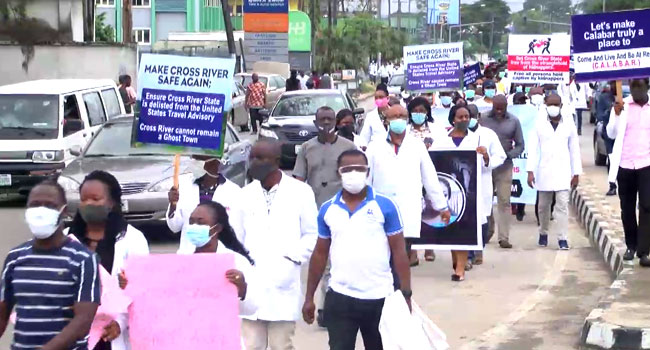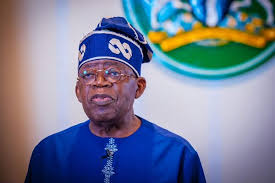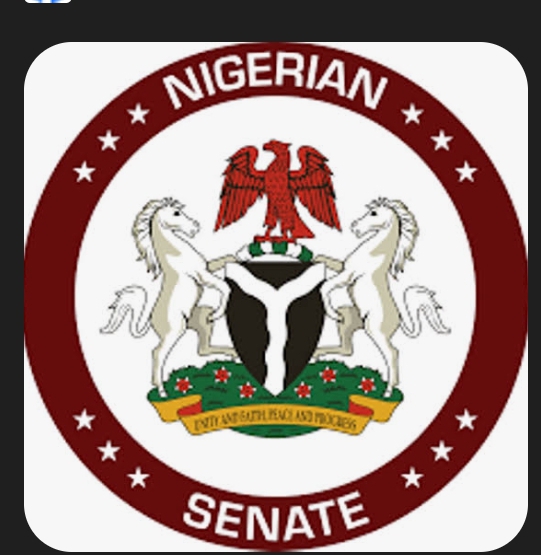The signs have been there for months—silent protests, warning letters, and mounting frustration among medical professionals. Now, the Nigerian health sector faces a possible shutdown, as doctors under the Nigerian Medical Association (NMA) say they’ve had enough.
It’s not just another strike threat. It’s a cry for help.
On July 2, the NMA issued a 21-day ultimatum to the Federal Government. The message was clear: respond to our demands or risk a total collapse of the nation’s healthcare system. With less than two weeks to go, tension is rising.
At the heart of the crisis are long-standing issues—promises made and promises ignored. In an exclusive interview with Channels Television, NMA President, Prof. Bala Audu, lays out the frustrations, the facts, and the future if urgent action is not taken.
A System Running on Empty
“Healthcare delivery is manpower intensive, and it is physician-driven,” Prof. Audu explains. “If we don’t take care of our health workforce, we can’t expect to deliver quality healthcare.”
His words are not just rhetoric. Nigeria’s healthcare system is bleeding staff. The much-talked-about “japa syndrome”—a mass exodus of professionals seeking greener pastures abroad—is draining hospitals of experienced hands. While young doctors continue to graduate, fewer are choosing to stay and serve. And those who do, face poor working conditions, delayed salaries, and a government slow to act.
“We’ve been patient for 18 months,” says Audu, “but that patience is running out.”
What Exactly Are Doctors Demanding?
This isn’t about fresh negotiations. The doctors aren’t asking for new allowances or benefits. Rather, they want the government to implement what has already been approved.
Top on the list is the backlog of salary arrears following the review of the Consolidated Medical Salary Structure (CONMESS). President Tinubu approved the new structure and its implementation was to begin in January 2024. But according to the NMA, not only have these payments been delayed, the accompanying allowances were miscalculated—some even slashed.
The NMA alleges that the National Salaries, Incomes and Wages Commission (NSIWC) ignored prior collective agreements from 2001, 2009, and 2014 when issuing its latest salary circular. Worse still, it failed to consult key stakeholders—including the Federal Ministry of Health and the NMA itself—before making critical changes.
“This was a one-sided decision,” says Audu. “And it made things worse.”
Among the most controversial parts of the circular is a reduction in the allowances for senior consultants—some of the very doctors the country desperately needs to keep.
Unkept Promises and a Waiting Game
According to Prof. Audu, there have been attempts at dialogue—most notably with the Minister of State for Health. But so far, no concrete steps have been taken to reverse the circular or pay the owed allowances.
“Everything we’re asking for has already been approved,” he says. “So why is it taking this long to implement?”
One part of the solution, he says, is simple: withdraw the controversial NSIWC circular and bring all parties back to the negotiating table. The NMA also wants the federal government to honour its promise to raise the retirement age for healthcare workers to 70—a move aimed at slowing the brain drain—and to accelerate the recruitment process for new hands.
While President Tinubu has given a waiver to recruit more clinical staff, many tertiary health institutions say they’ve not received official clearance to proceed.
“The policies are in place,” says Audu. “The only thing missing is implementation.”
A Looming Shutdown
If these issues remain unresolved, the NMA may be left with no choice but to strike. And that could spell disaster for Nigeria’s fragile healthcare system.
From public hospitals already running on limited staff, to rural clinics that rely on overstretched doctors, a nationwide shutdown could leave millions without care.
The NMA insists it does not want to take that route.
“Nobody wants to shut down the healthcare system. We’re trying to avoid that. But we also cannot keep working under these conditions,” Audu states.
The Bigger Picture
Beyond salaries and allowances, there’s a deeper concern—Nigeria’s ability to retain its health workers and provide quality care to its citizens in the long run. With more doctors and nurses leaving, and fewer specialists in training, the pipeline is thinning.
Residency training—vital for producing the next generation of medical specialists—is also suffering. Many young doctors now prefer to go abroad for postgraduate studies and never return.
“Without urgent investment in our workforce, we’re heading for a healthcare crisis,” warns Audu.
A Window of Opportunity
The good news is that the window to act is still open. The NMA believes that with genuine dialogue and immediate action, the crisis can be averted.
“The government can fix this,” Audu says with cautious optimism. “It just needs commitment.”
As the countdown to the end of the 21-day ultimatum ticks on, one thing is clear: Nigeria’s doctors are willing to serve, but not to suffer in silence. And if things don’t change soon, the stethoscopes may be hung, not out of protest, but out of necessity.
Bottom Line?
The fate of Nigeria’s healthcare system is once again in the balance—not because doctors are unwilling to work, but because they are tired of being ignored.
And when the people who save lives are forced to fight for their own survival, the real casualty is the nation.





